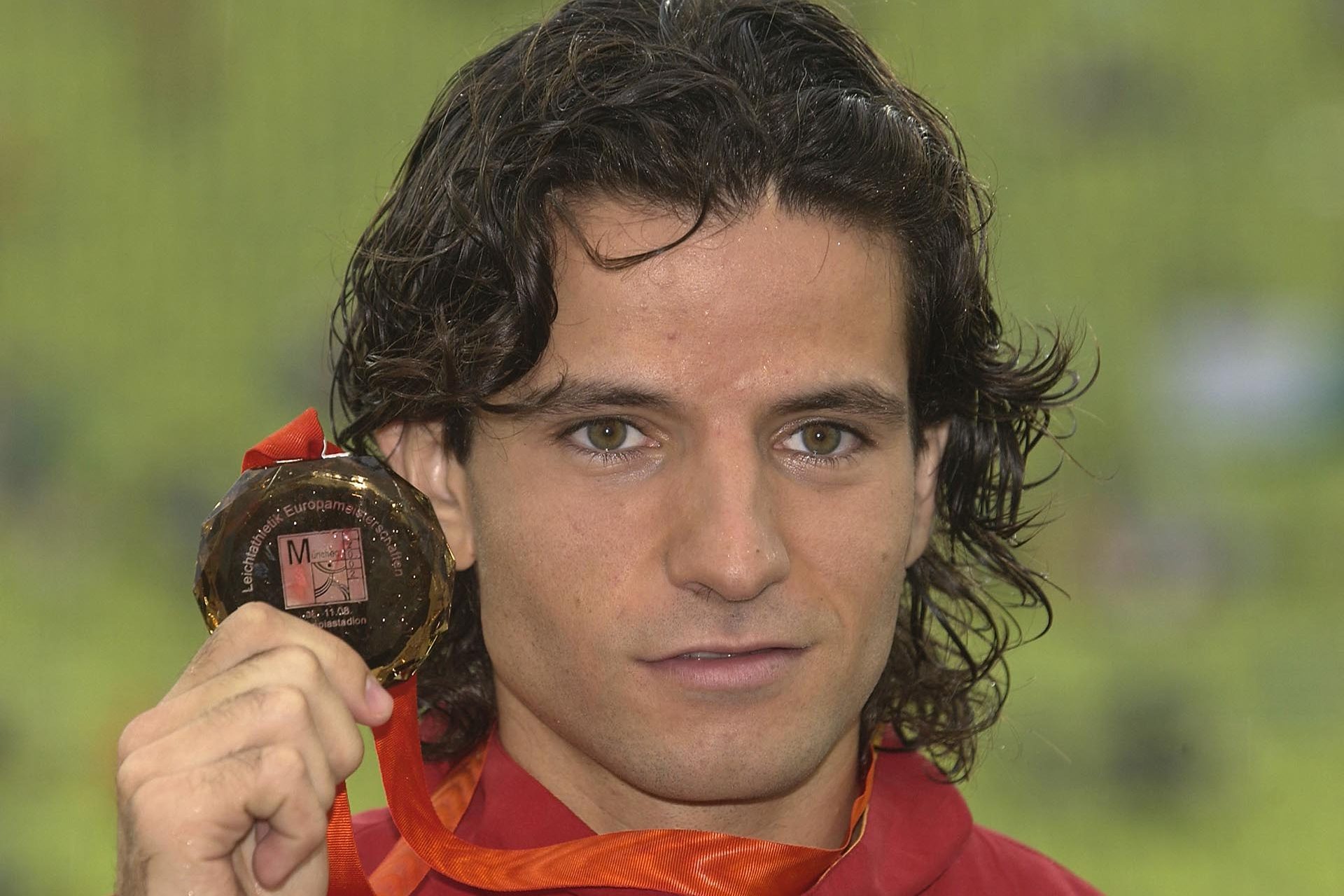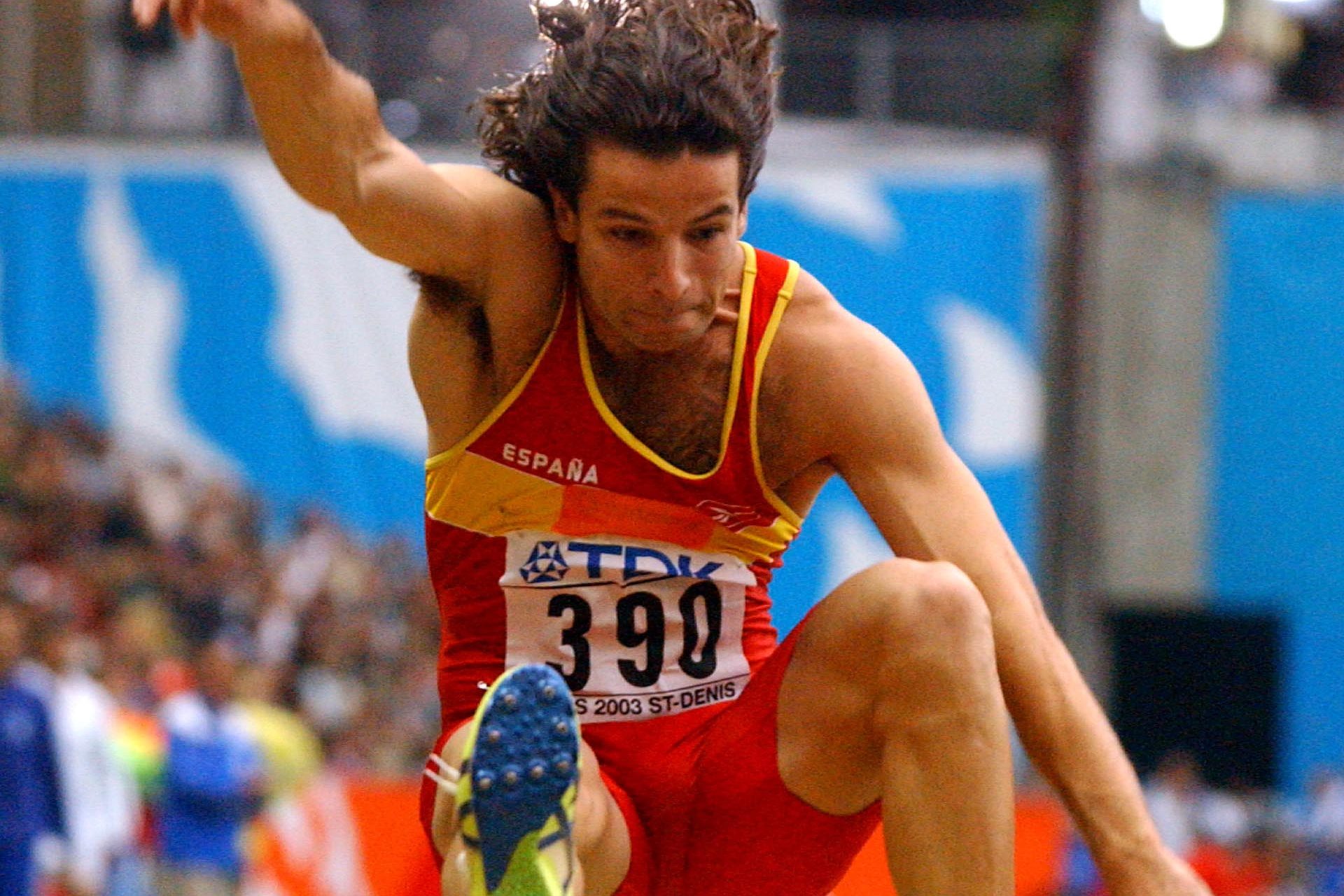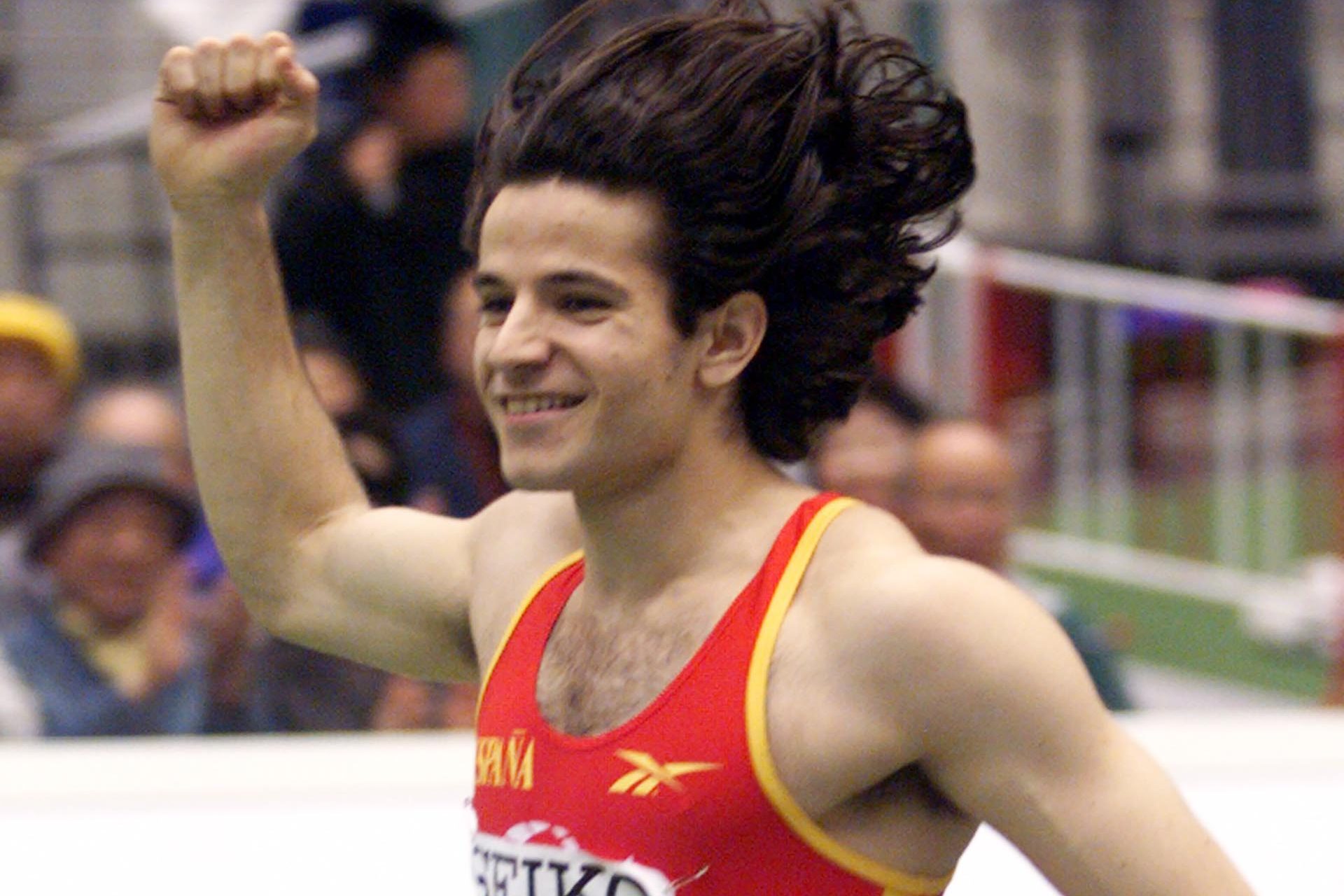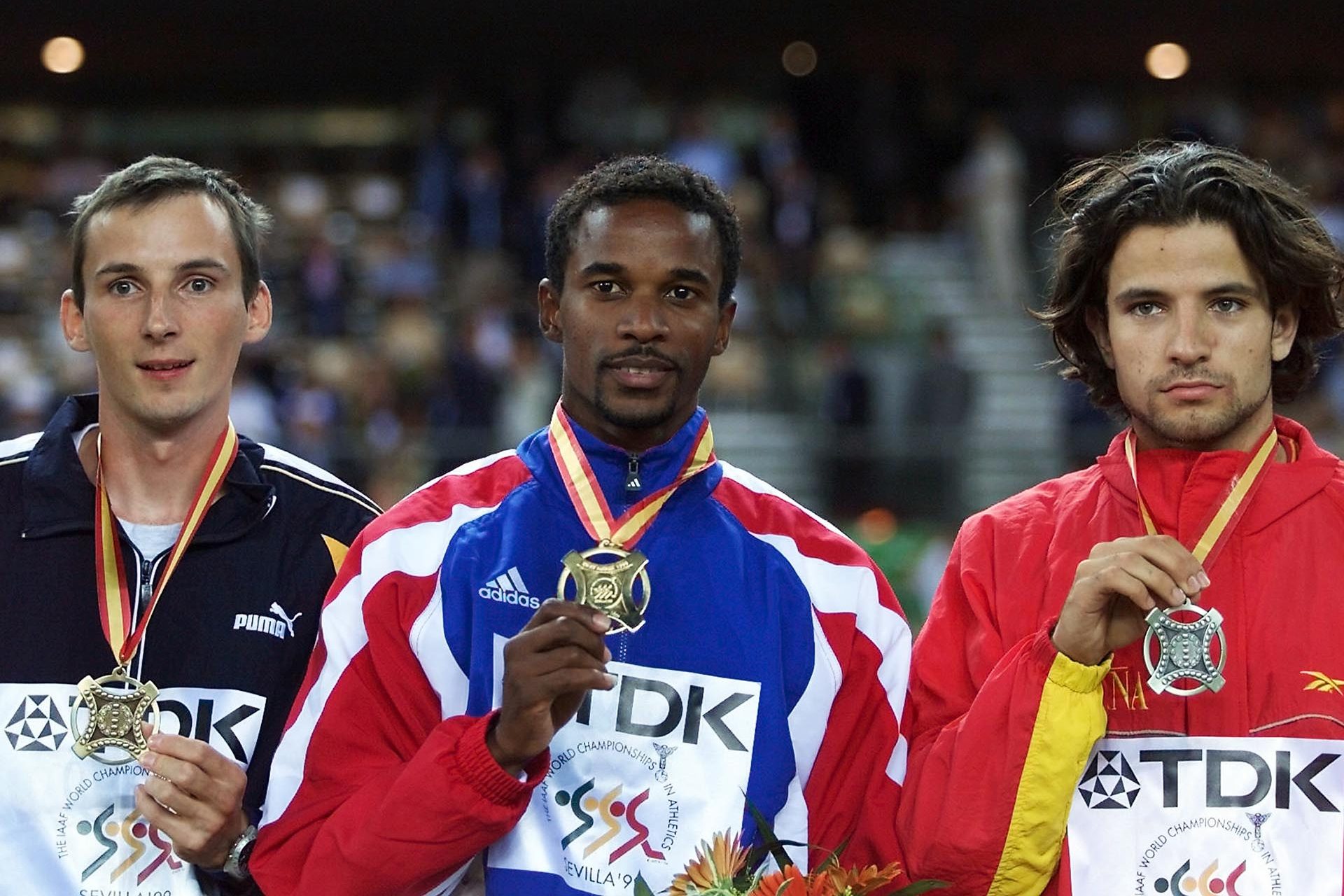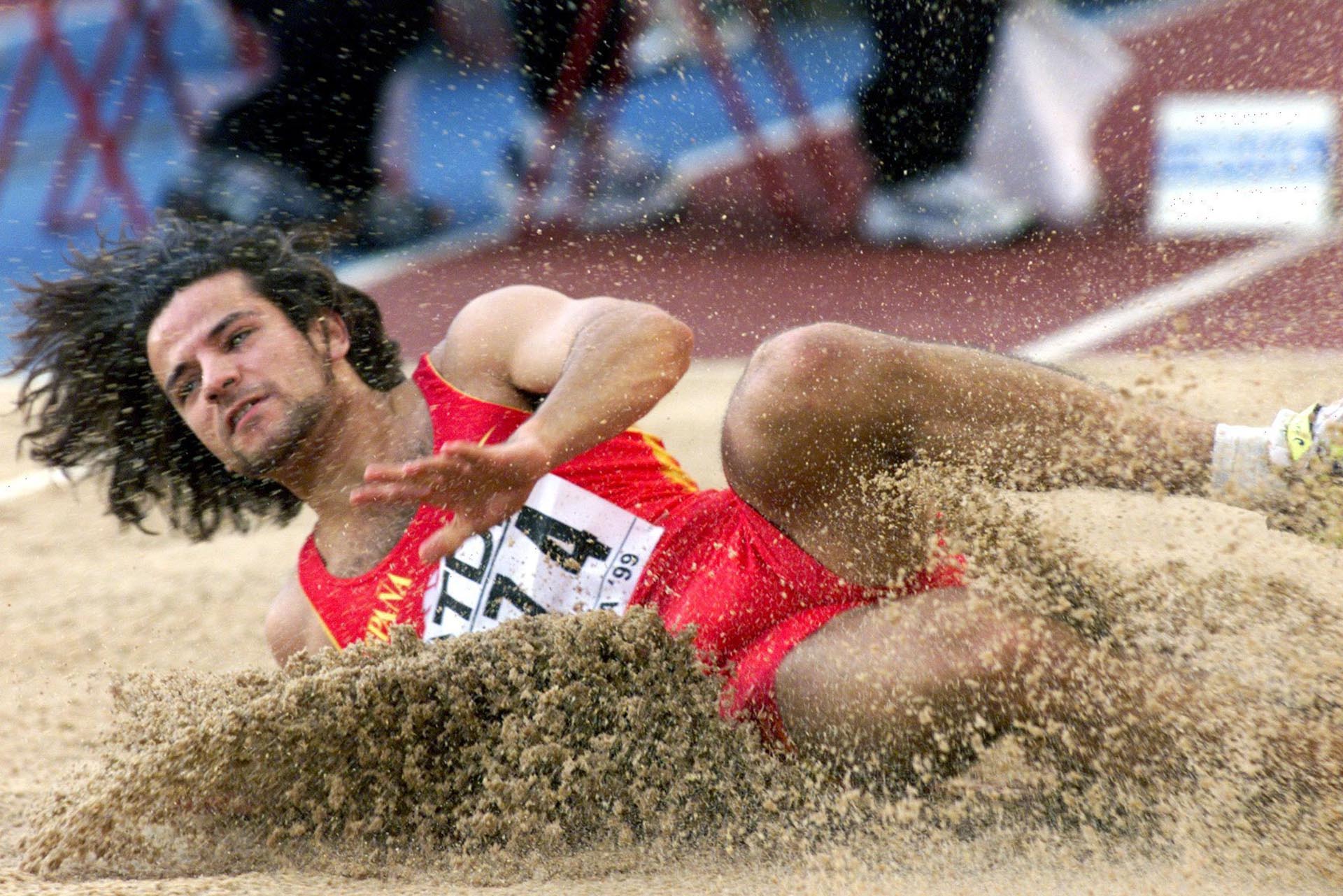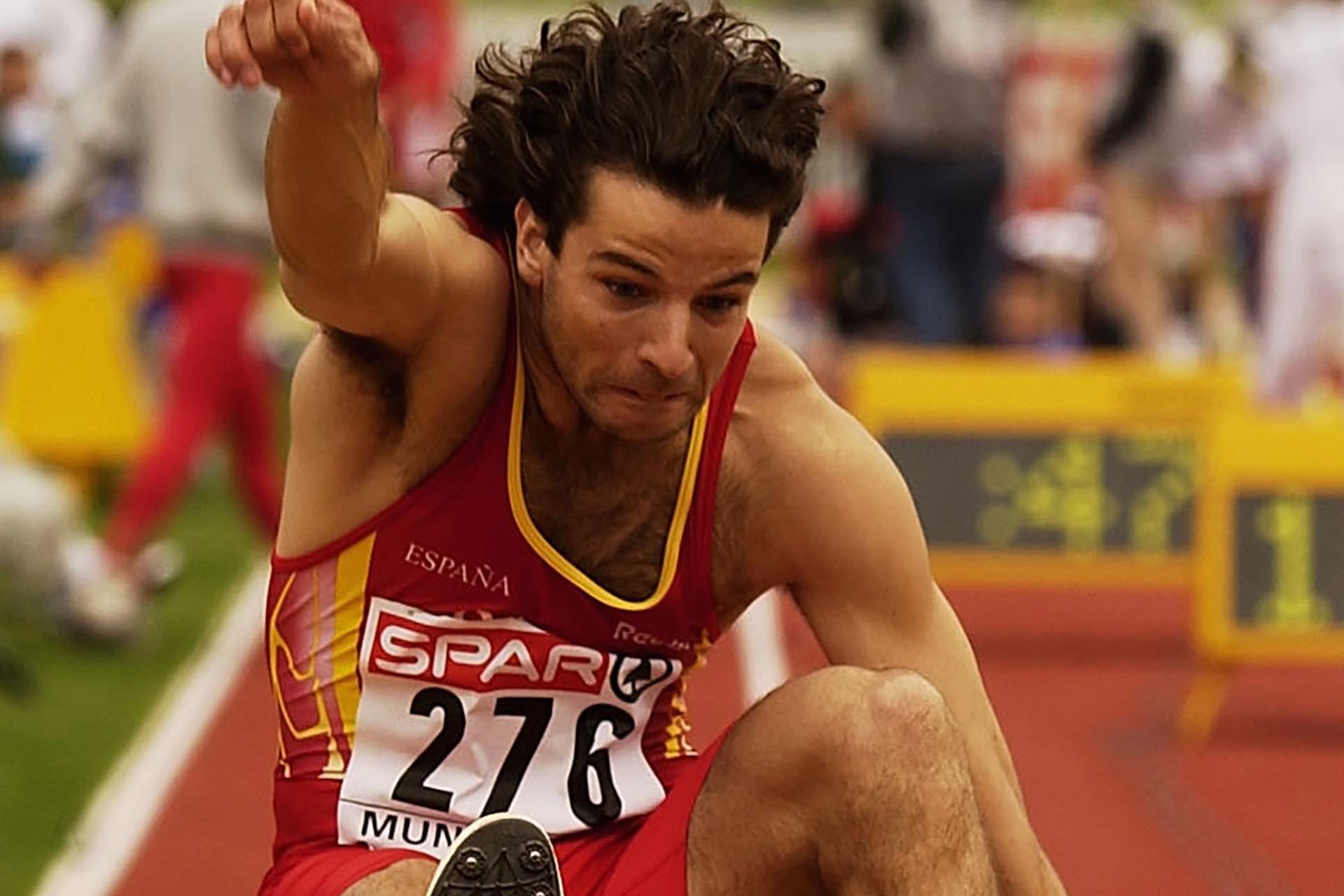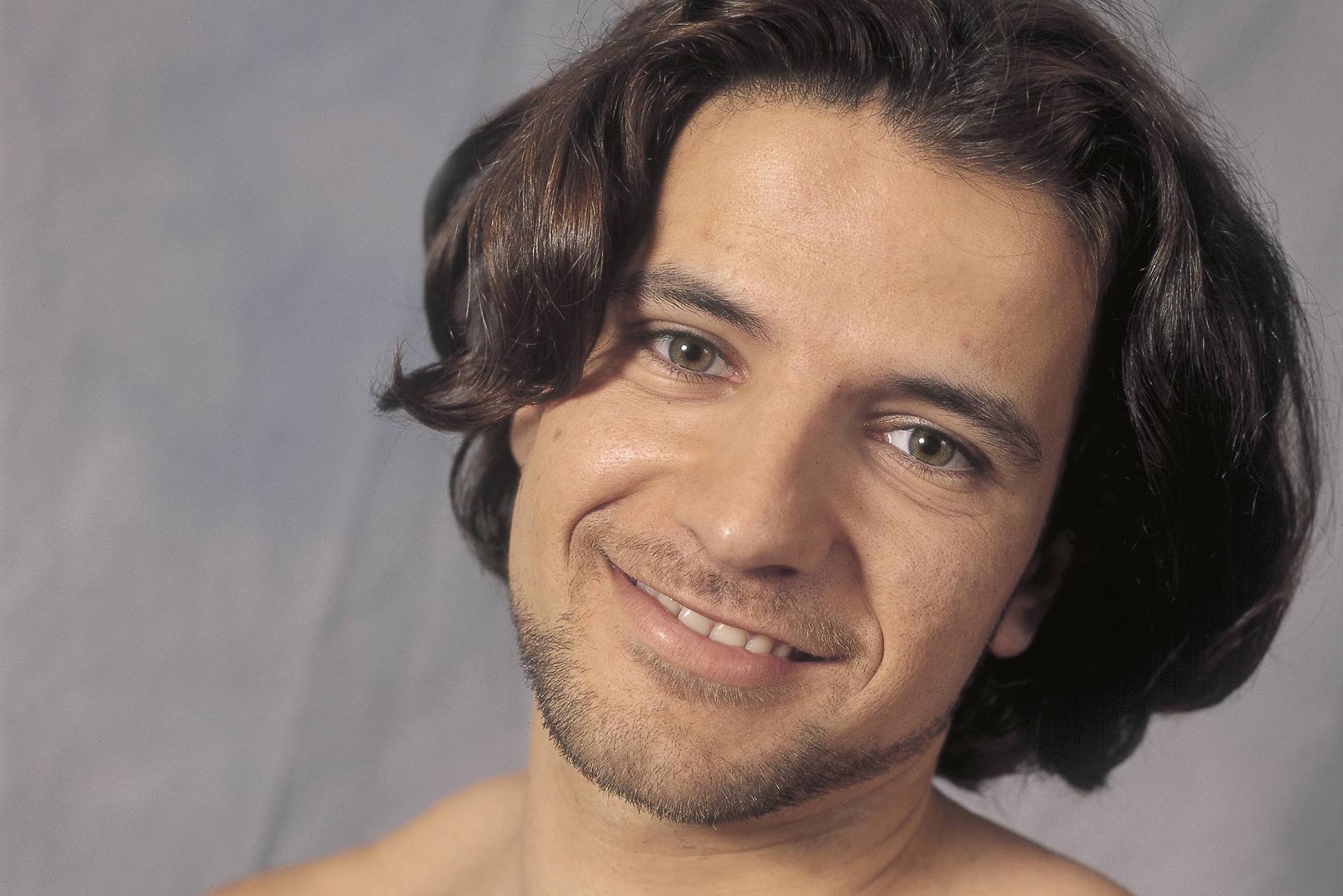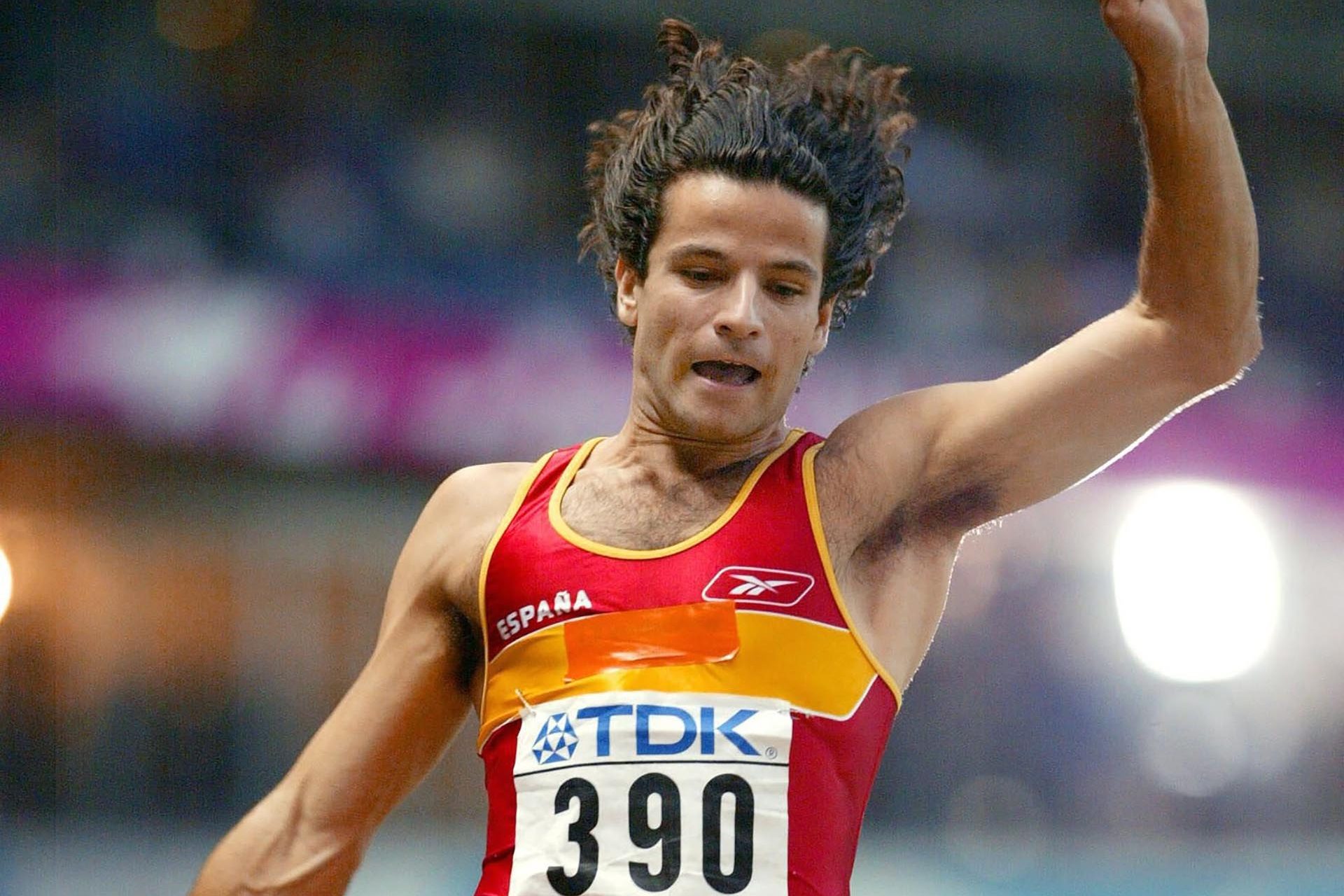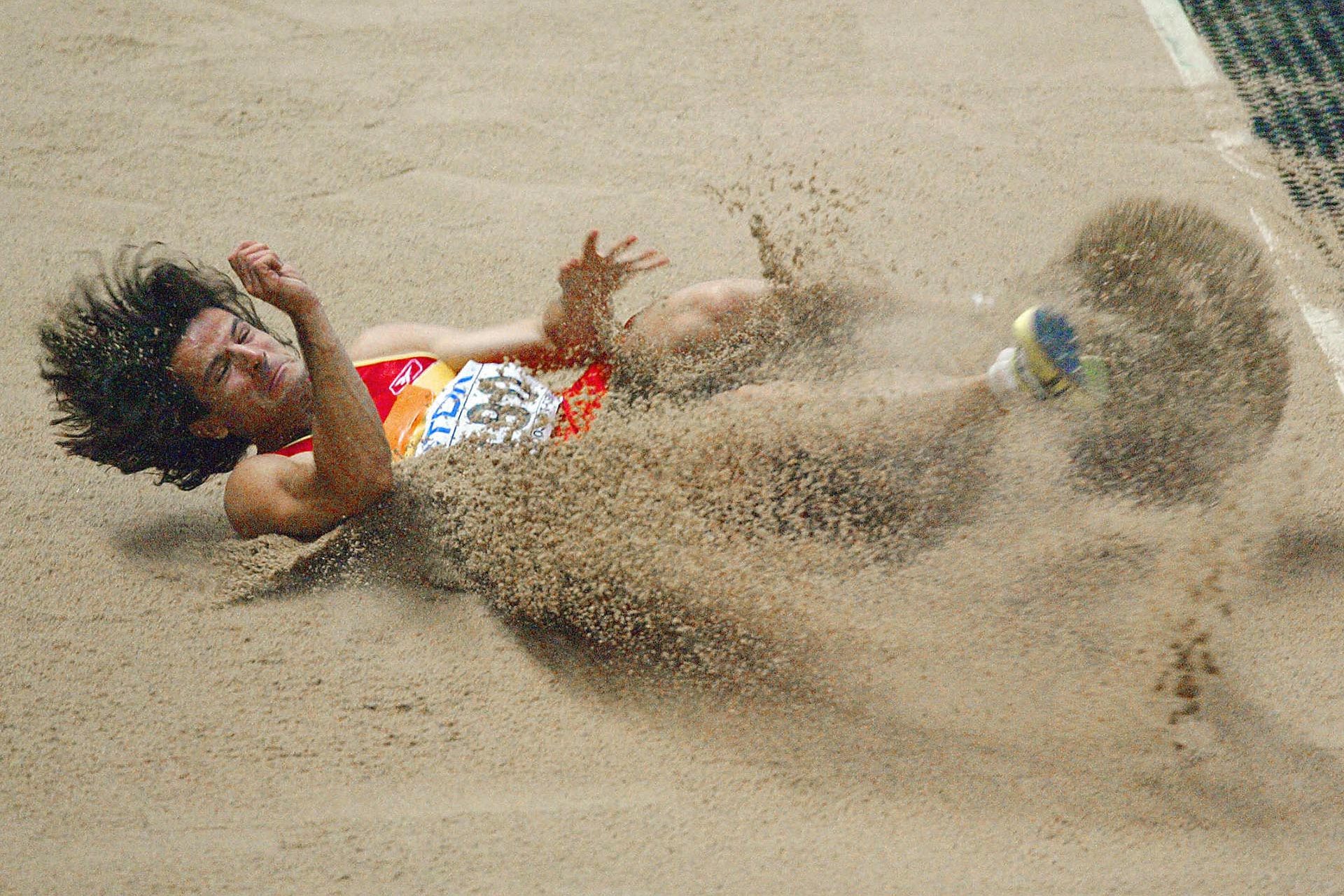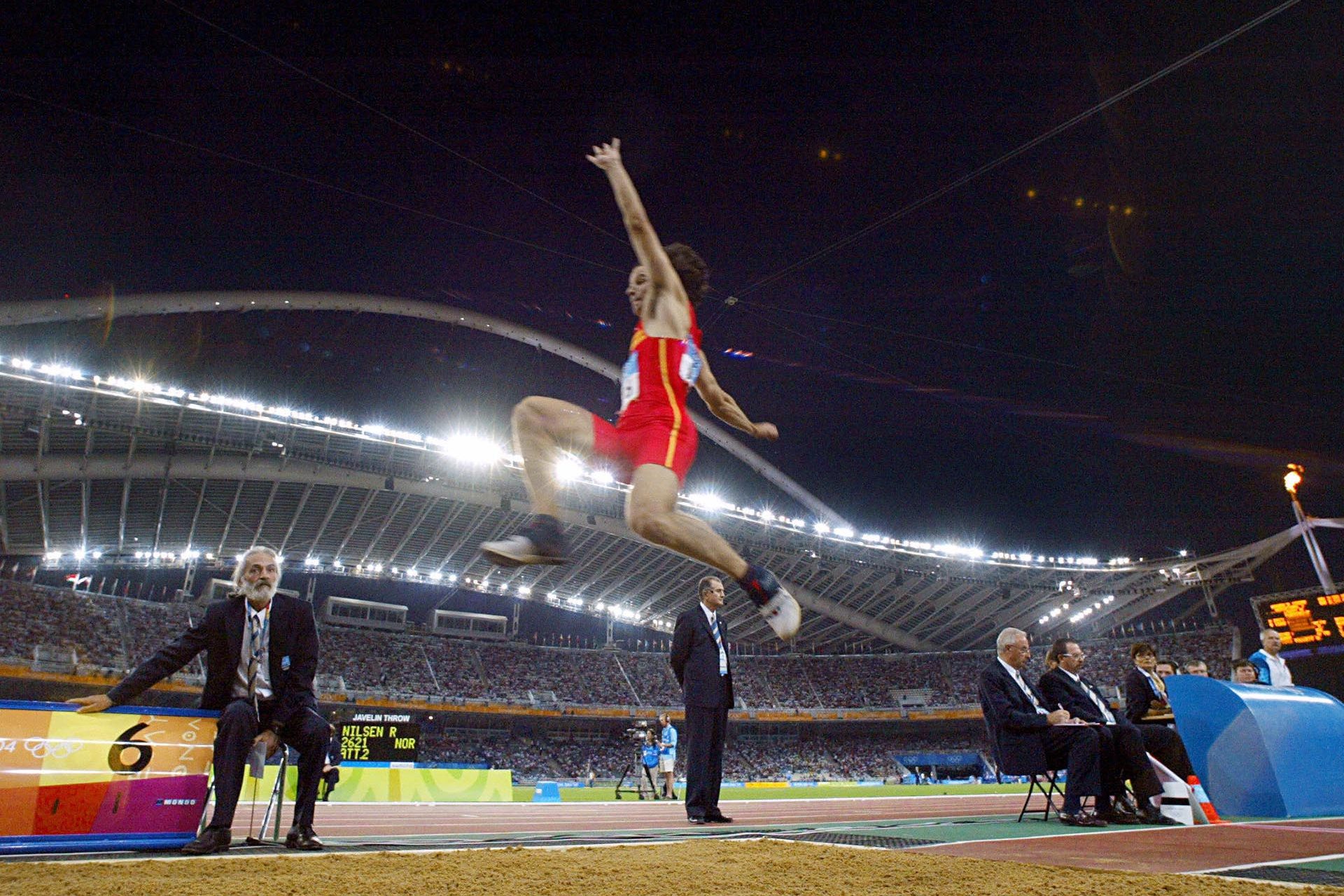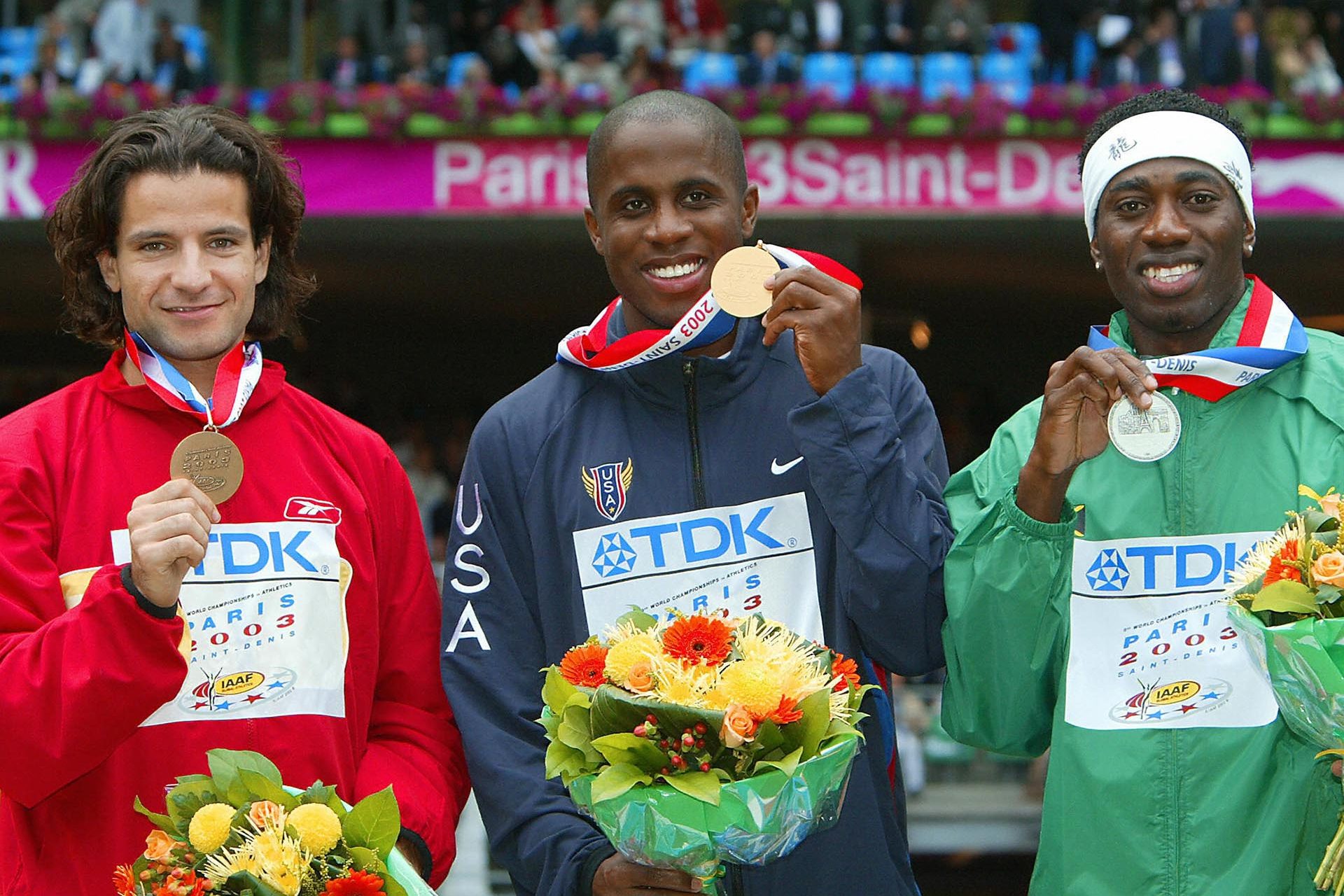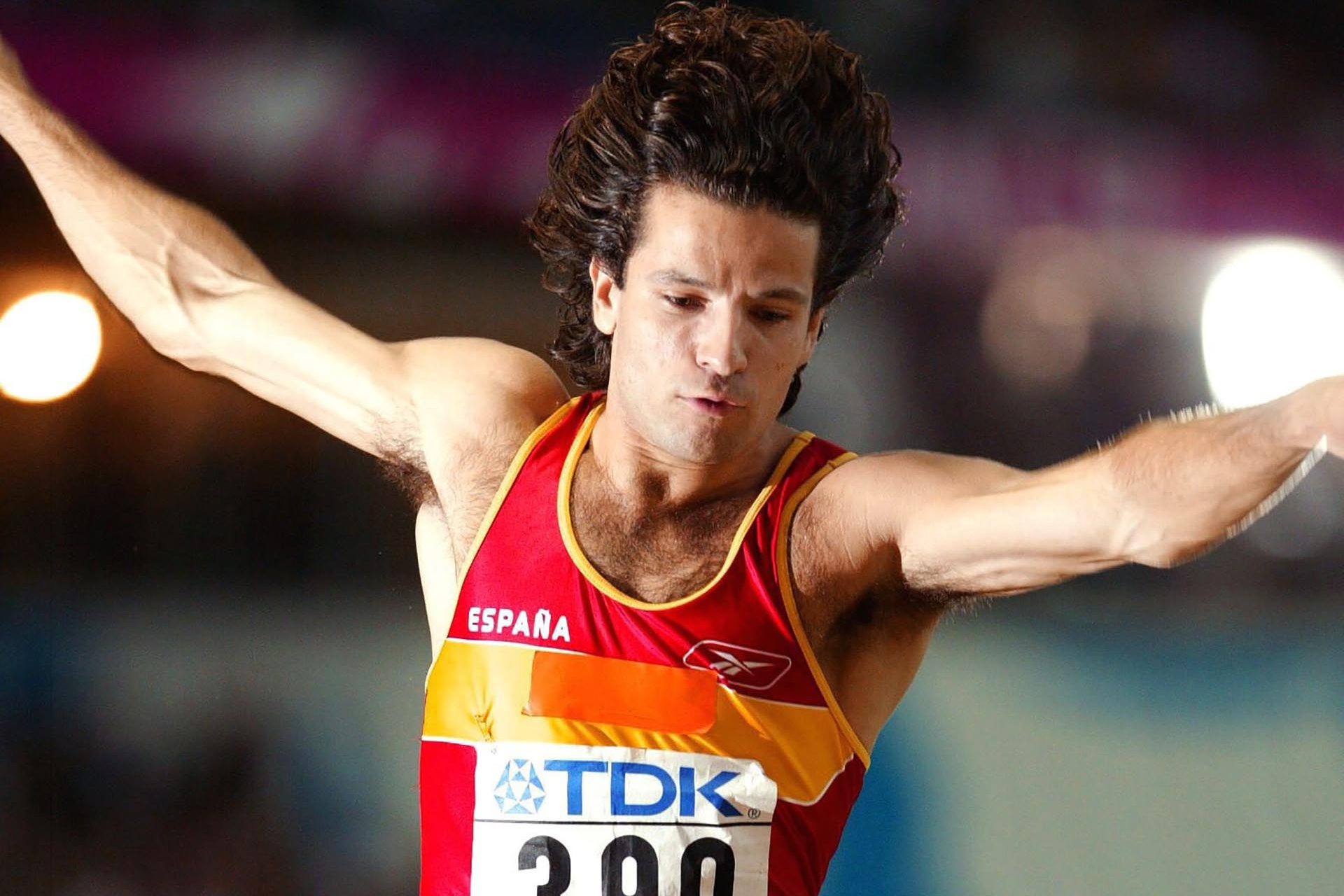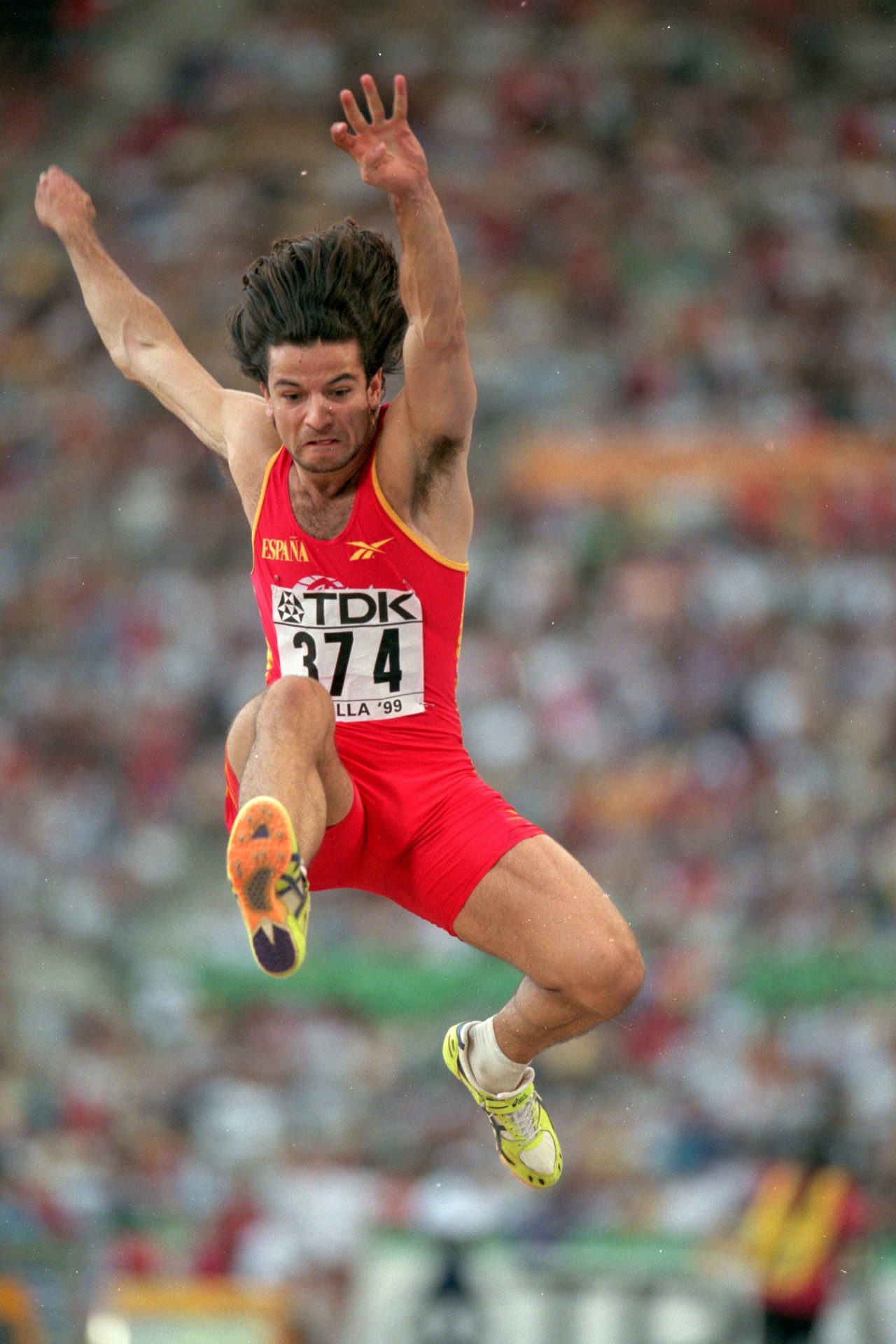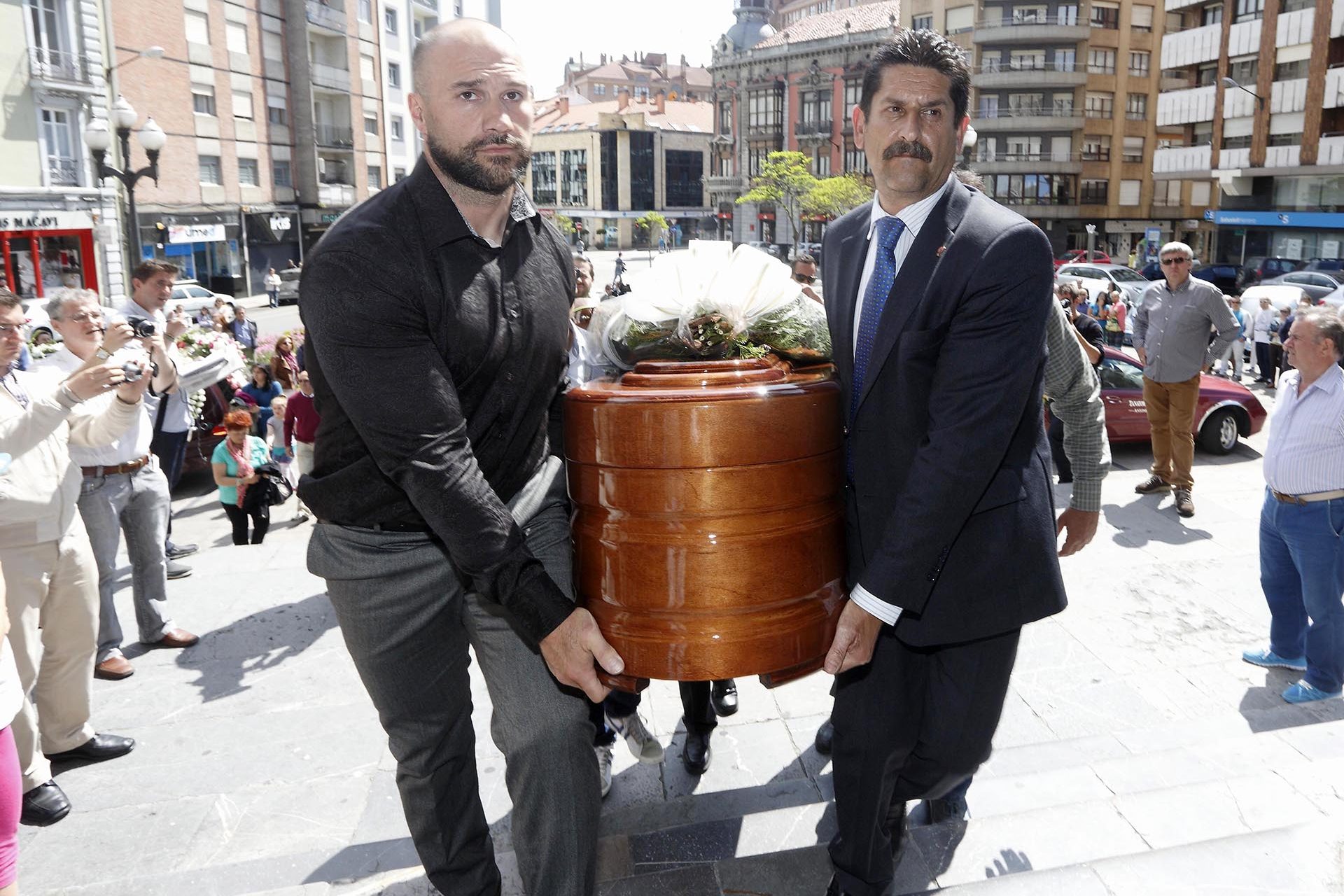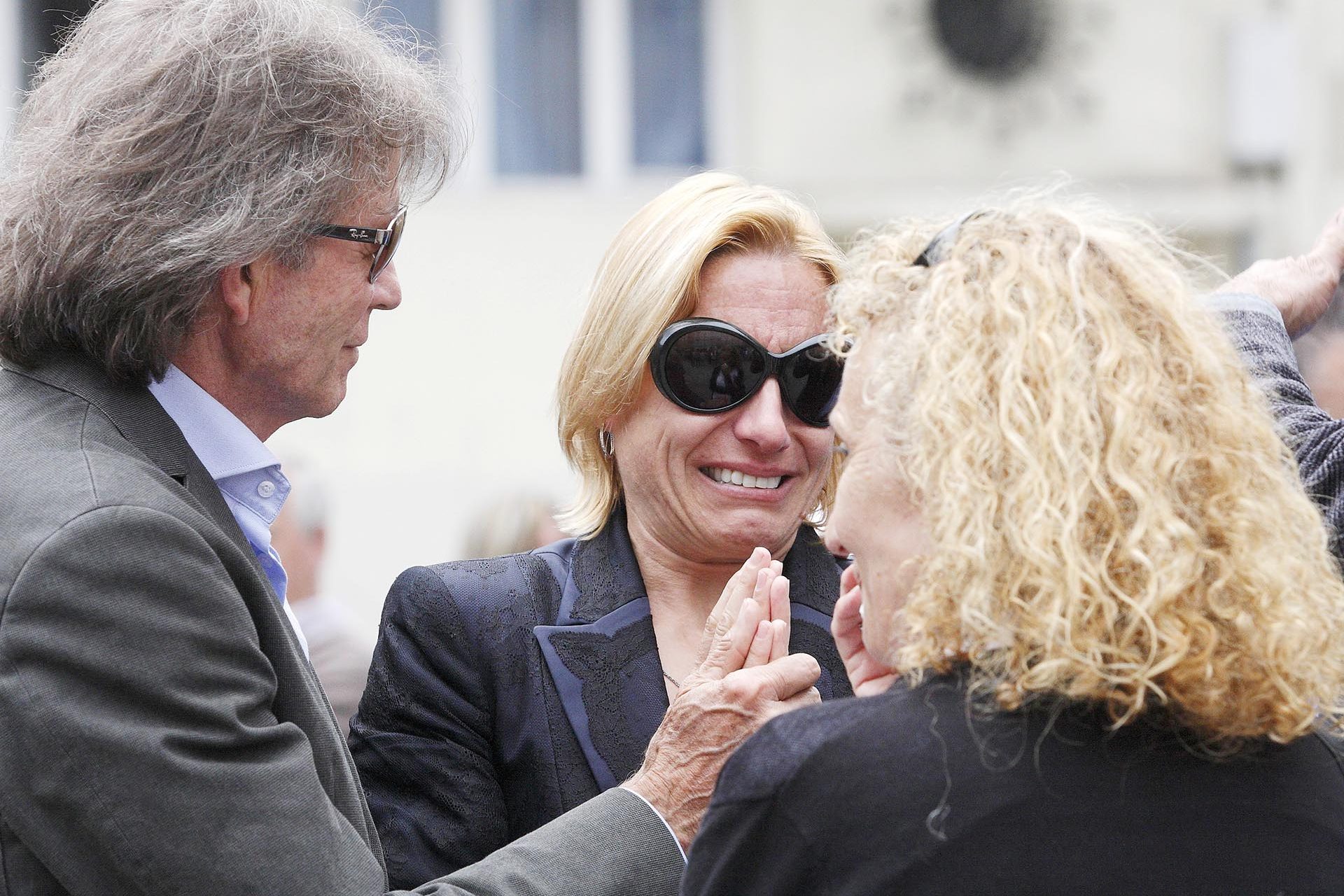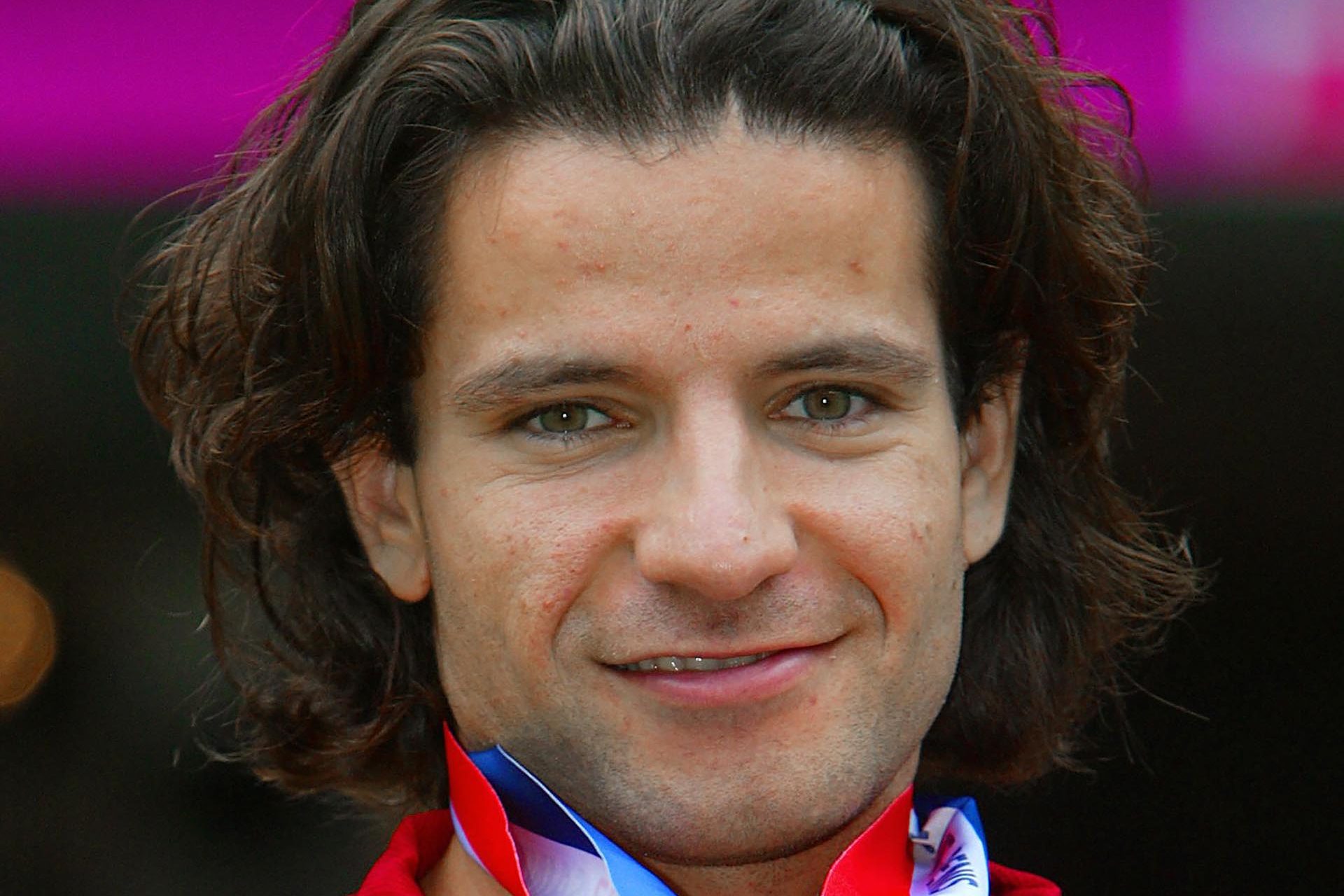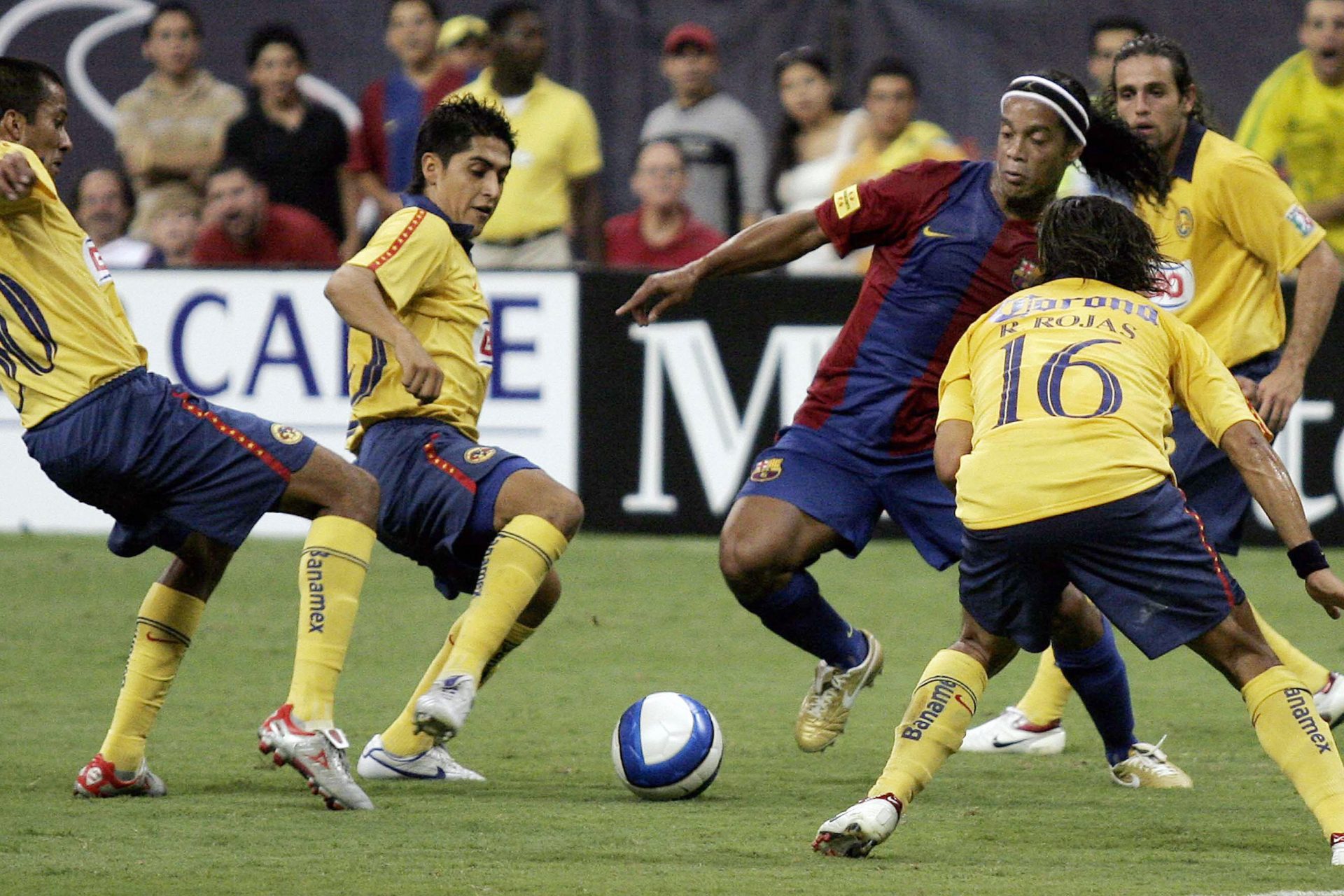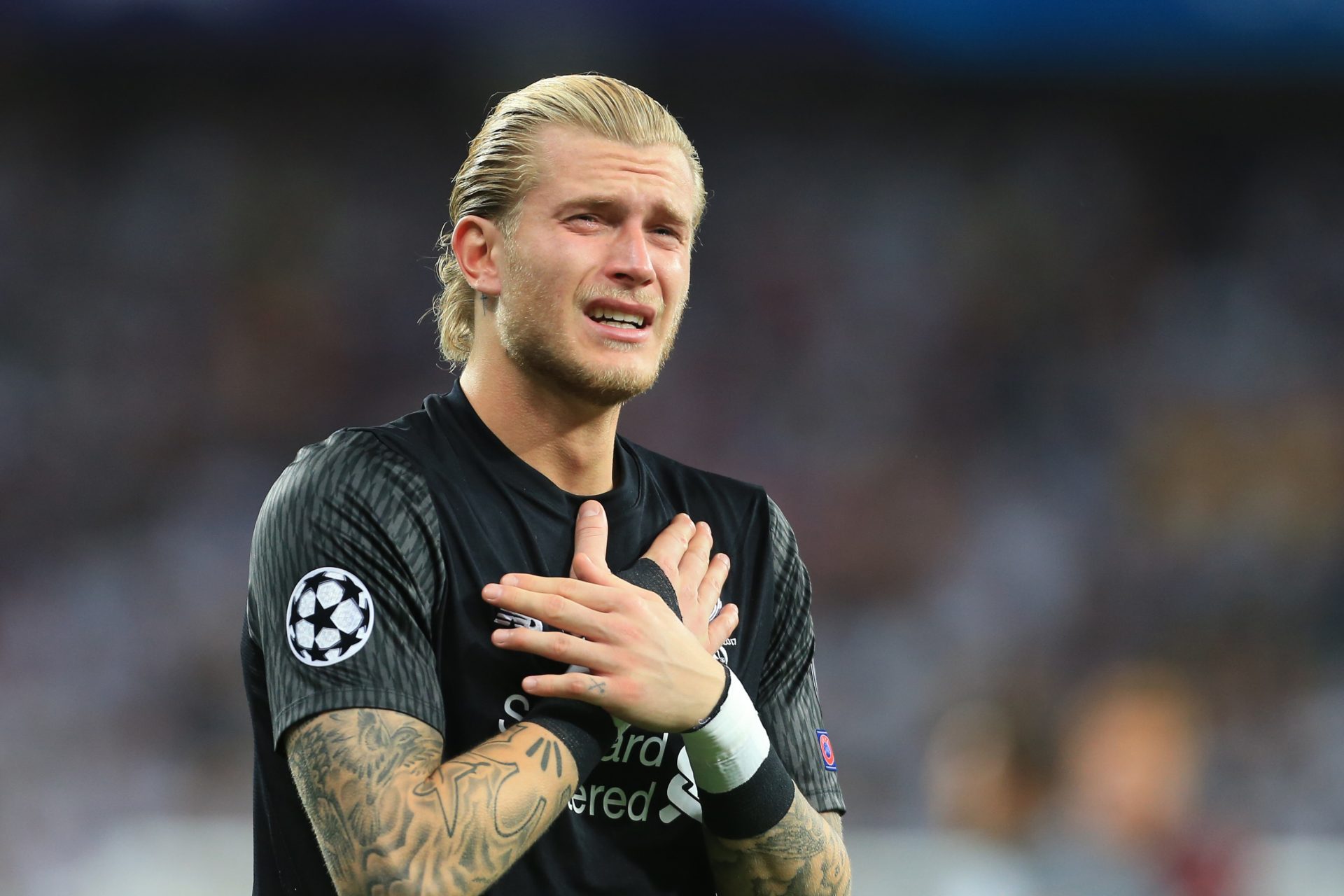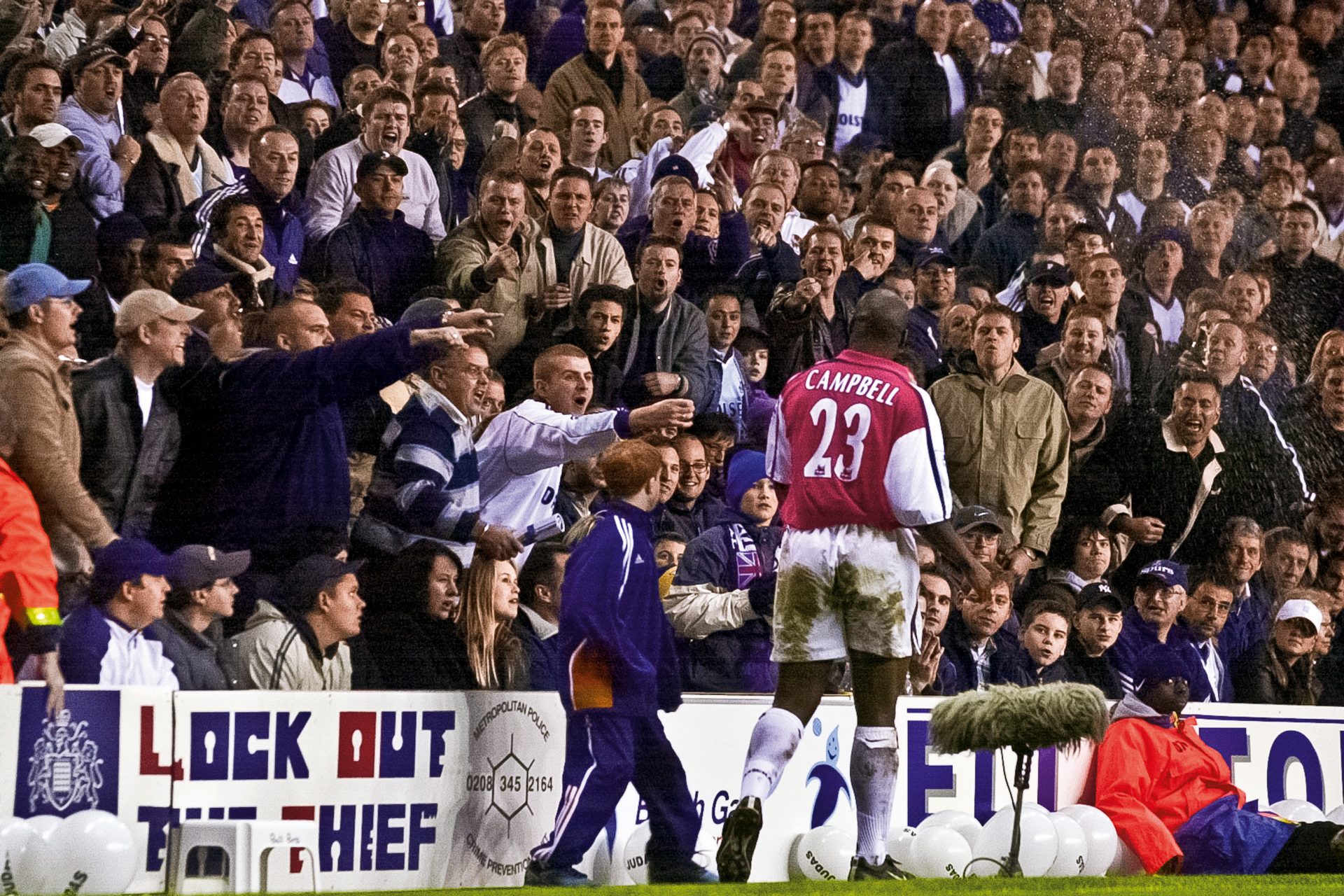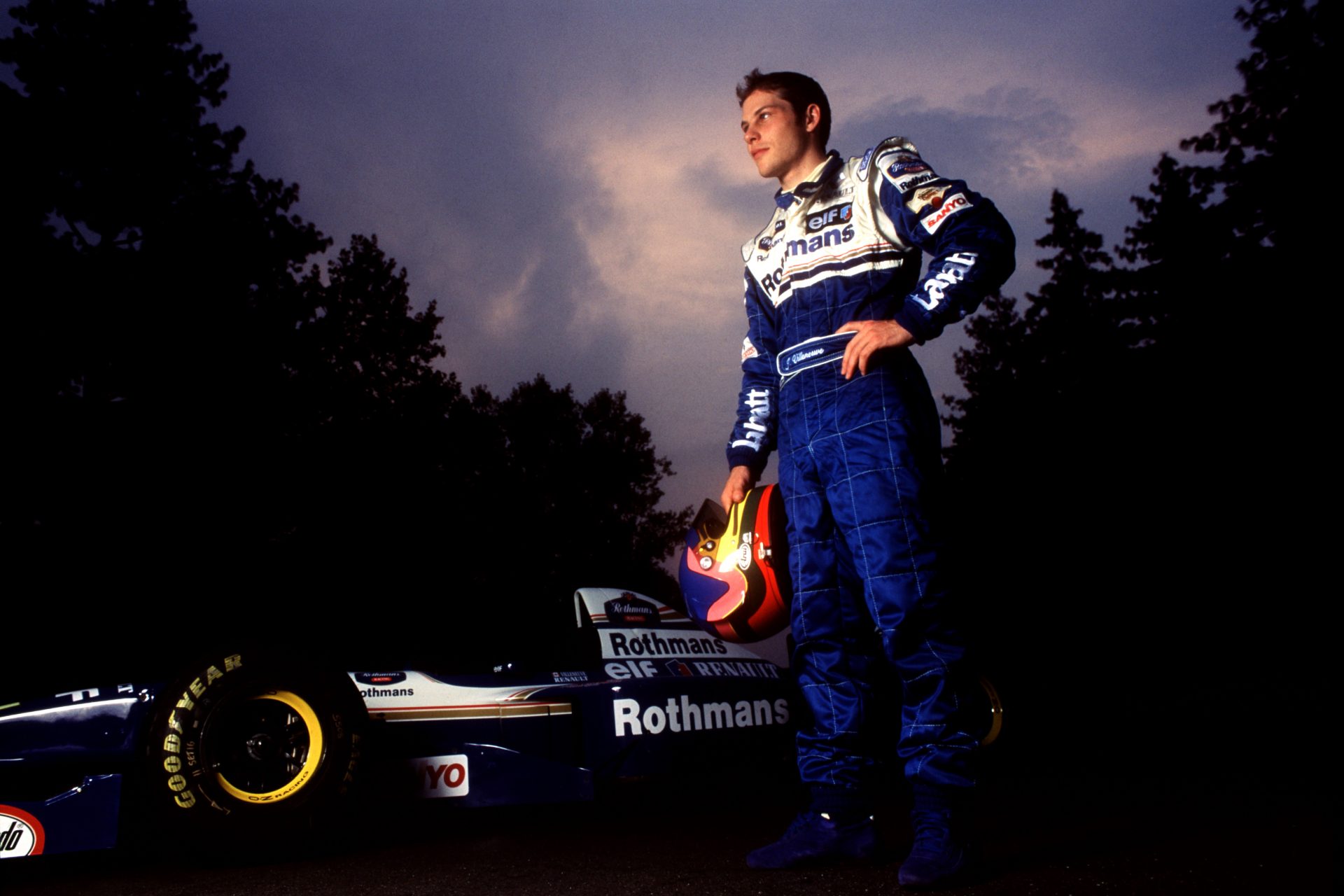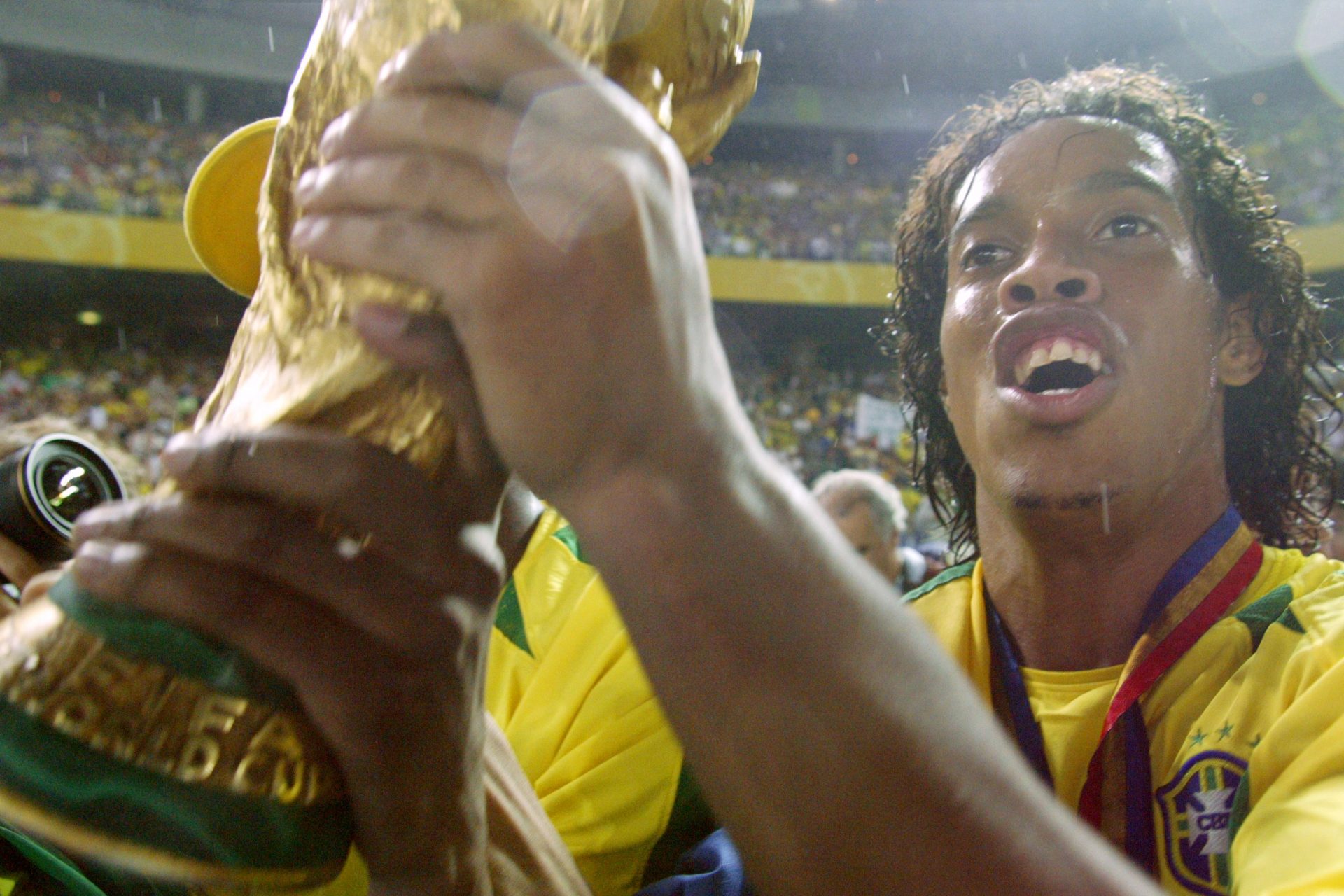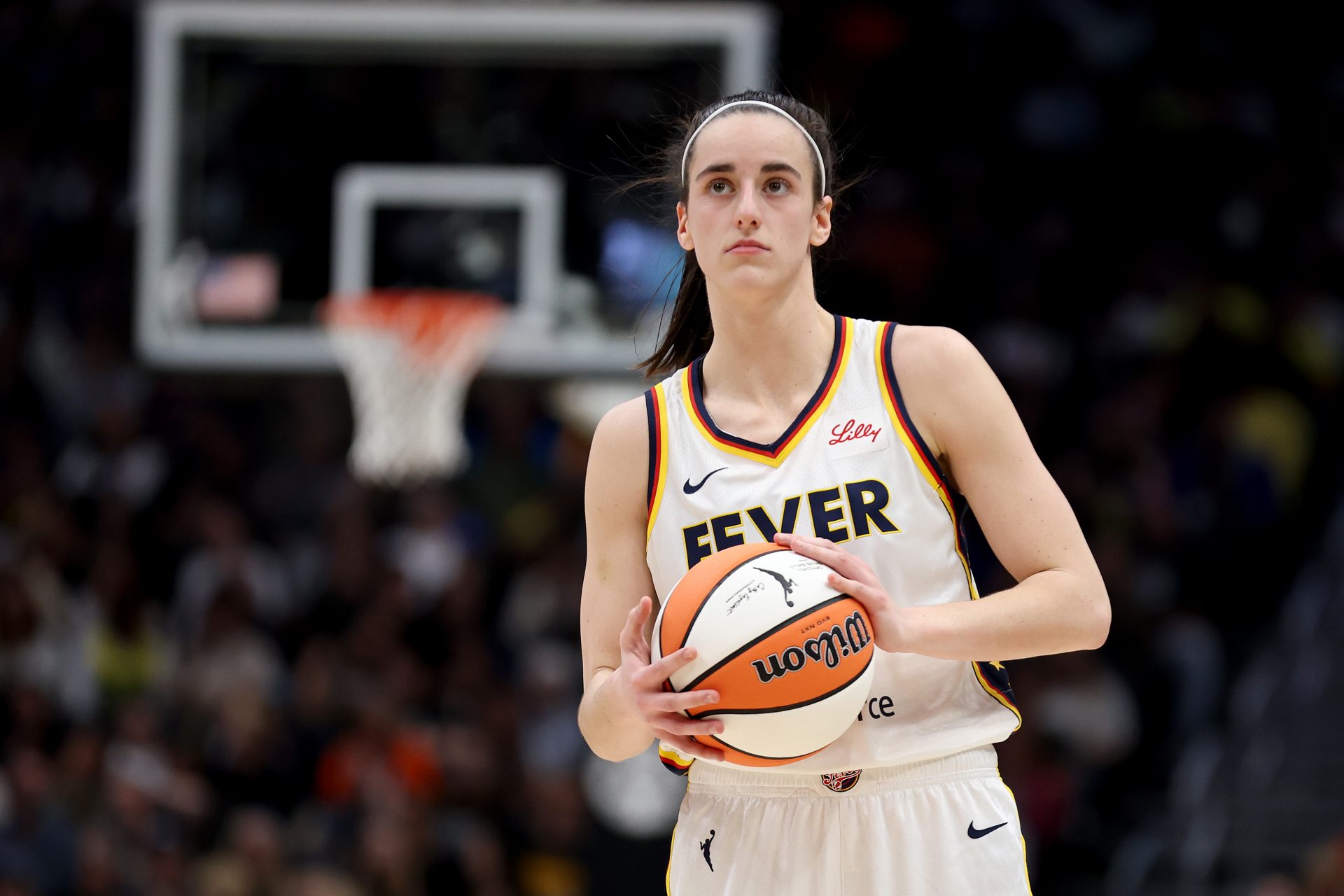Yago Lamela: The heartbreaking story of a long jump champion
Yago Lamela was one of Spain's greatest long jumpers when his life was cut short in 2014 at the age of just 36. This is Lamela's tragic story.
His love story with the world of athletics began at a young age, when he was only seven years old, and it was thanks to a cross-country race in which he participated in his hometown, Avilés (Asturias). It was his entry point to the Avilesina Athletic Association, where he began to forge his legend.
And it would be at the age of 22, at the 1999 Maebashi World Indoor Championships, where he took the definitive step to become an elite jumper, setting a mark in his jump of 8.56 meters, per World Athletics. This feat forced Cuban Iván Pedroso, the best in the discipline at that time, to do everything he could to win gold – which he would achieve with a jump of 8.62 meters.
Want to see more like this? Follow us here for daily sports news, profiles and analysis!
Lamela then took the silver medal and the European indoor jumping record, a milestone that remained in his hands for an entire decade, until the German Sebastian Bayer took it from him in March 2009. A star was born!
The Asturian athlete's career in the elite, however, would not last more than five years, until 2004, when he began to be hampered by injuries. Even so, he was still achieving marks of over 8 meters and gave the fans several epic duels with Pedroso.
That same year, 2004, Lamela began to have problems with his Achilles tendon, an ailment that worsened to the point that at the Athens Olympic Games that year, he had to be treated with pain relief medication in order to compete. Though he was able to compete in the short term like this, the issue prevented him from reaching the Olympic final.
In November 2004, he underwent successful Achilles tendon surgery in Finland at the hands of Dr. Sakari Orava, then considered the best specialist in the world in this type of injury. Everything went well, except his recovery, which was slower than expected...
But since misfortunes never come alone, just a year later, in December 2005, Lamela was involved in a horror car accident and had to be admitted to the Albacete General Hospital with a severe blow to the head and a lung contusion.
Lamela's bad luck would continue. The next would come in 2006, when, two weeks before he was due to make his return to the track, he ruptured both Achilles tendons, which would force him to undergo surgery again in 2007, again in Finland.
Want to see more like this? Follow us here for daily sports news, profiles and analysis!
After finally returning to the track, his next goal was to make the 2012 London Olympics. After a long time, it seemed that everything was turning in his favor to turn the darkest page of his life to date, but, another injury again, this time due to a torn calf, ended all his hopes.
Exactly 10 years after his emergence into the elite of world athletics, weighed down by continuous injuries, Lamela decided to put an end to his career. He announced it on March 11, 2009…
It was from then on that Yago Lamela's physical injuries began to turn into psychological problems – suffering from crippling depression to the point that, in June 2011, he was admitted to the Psychiatry ward of the San Agustín Hospital in Avilés.
At that time, he wanted to fulfill another of his dreams, to become a commercial helicopter pilot. He had also resumed his studies in Computer Science at the University of Iowa, in the United States, but his mental health problems led him to return to his parents in Asturias.
But the worst chapter of his short life was yet to come, it was on May 8, 2014, when they found his lifeless body in his home in Avilés. He was only 36 years old and, according to the autopsy, he died of a heart attack.
Surrounded by his family, his friends and many professionals with whom he shared years in the elite, such as Marta Domínguez, Yago Lamela was buried in the La Carriona Cemetery in Avilés.
A superstar of Spanish sports whose career was only a fraction of what it could have been. Two gold medals, four silver and two bronze medals and incredible personal bests of 8.56 meters in the long jump and 16.72 in the triple jump. There's no telling what his record could have been if he was not robbed of his best years.
Want to see more like this? Follow us here for daily sports news, profiles and analysis!
More for you
Top Stories



